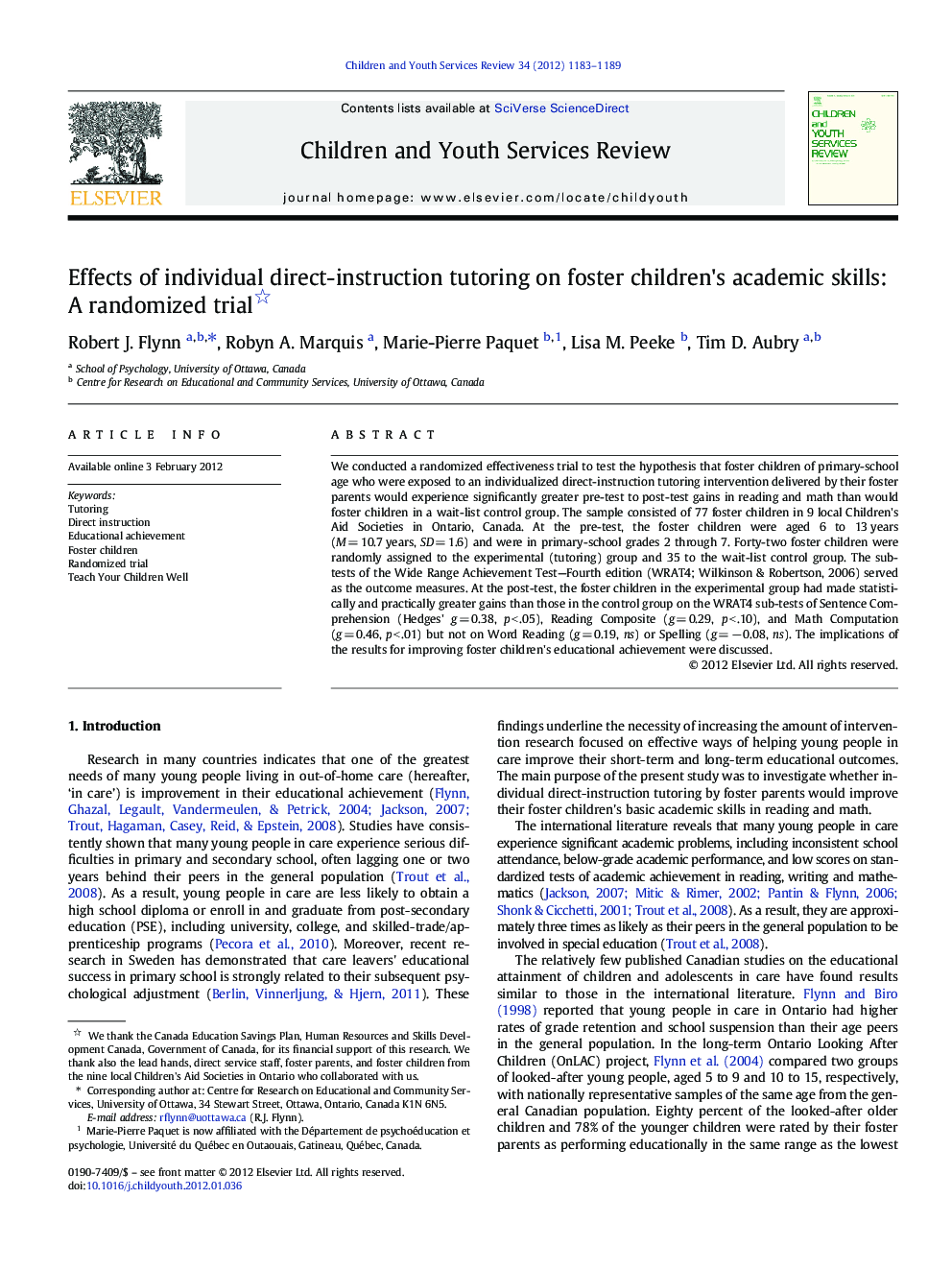| Article ID | Journal | Published Year | Pages | File Type |
|---|---|---|---|---|
| 346962 | Children and Youth Services Review | 2012 | 7 Pages |
We conducted a randomized effectiveness trial to test the hypothesis that foster children of primary-school age who were exposed to an individualized direct-instruction tutoring intervention delivered by their foster parents would experience significantly greater pre-test to post-test gains in reading and math than would foster children in a wait-list control group. The sample consisted of 77 foster children in 9 local Children's Aid Societies in Ontario, Canada. At the pre-test, the foster children were aged 6 to 13 years (M = 10.7 years, SD = 1.6) and were in primary-school grades 2 through 7. Forty-two foster children were randomly assigned to the experimental (tutoring) group and 35 to the wait-list control group. The sub-tests of the Wide Range Achievement Test—Fourth edition (WRAT4; Wilkinson & Robertson, 2006) served as the outcome measures. At the post-test, the foster children in the experimental group had made statistically and practically greater gains than those in the control group on the WRAT4 sub-tests of Sentence Comprehension (Hedges' g = 0.38, p < .05), Reading Composite (g = 0.29, p < .10), and Math Computation (g = 0.46, p < .01) but not on Word Reading (g = 0.19, ns) or Spelling (g = − 0.08, ns). The implications of the results for improving foster children's educational achievement were discussed.
► We conducted a randomized trial of academic tutoring by foster parents. ► Gains were made on sentence comprehension, reading composite, and math computation. ► No gains were made on word reading and spelling. ► Academic tutoring is a promising intervention for children in care.
